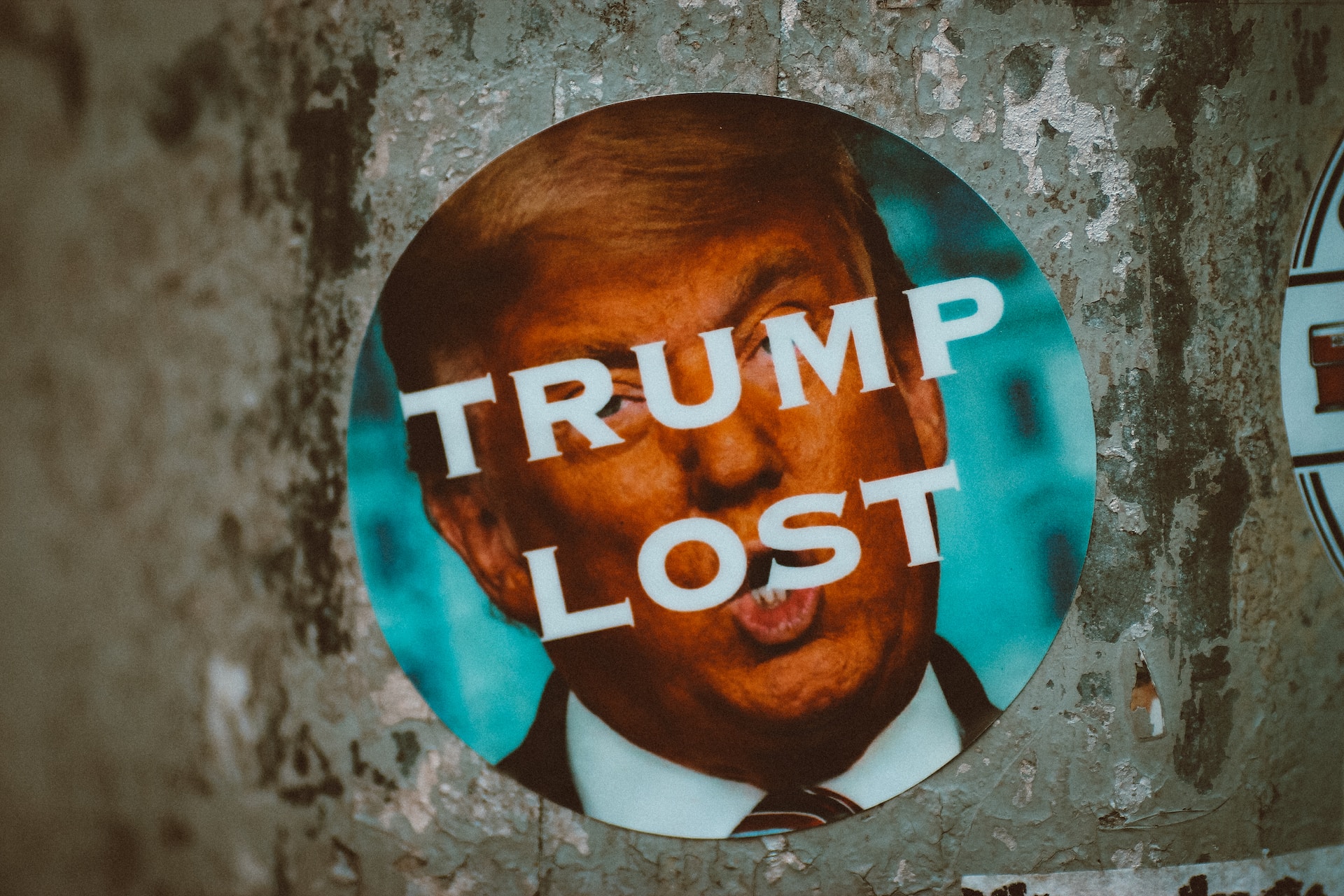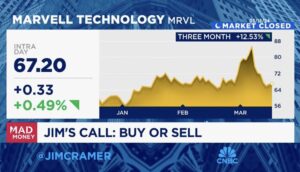
When you make purchases through our links we may earn a small commission.

Photo Credit: Jon Tyson
This article was republished with the implied consent from FactCheck.org, authored by Robert Farley and Lori Robertson on November 13, 2018
🇺🇸 Help us share the facts for only $1.99 a month 🇺🇸
🍻
Quick Take
Full Story
With votes continuing to be counted in very close elections in Florida, Georgia and Arizona, President Donald Trump and some other Republicans have been crying foul, making false and misleading claims of supposed election fraud perpetrated by Democrats in an attempt to “steal” the elections.
There is no evidence of an organized effort by Democrats to “steal” elections, and the ballot counting is proceeding in due course. It often takes more than a week for counties around the country to count mail-in, absentee and provisional ballots. What’s unusual is that these ballots could tilt the results one way or the other. And in Florida, a mandatory recount has already been triggered in the elections for U.S. Senate and for governor.
Nonetheless, the president and other Republicans have been muddying the national dialogue and spinning the facts:
- Trump claimed Republicans “won” the Florida elections for Senate and governor, and that Democrats are trying to go back and “steal” them by improper means. But the results on election night were preliminary, and election officials are still counting absentee and provisional ballots, and conducting a mandatory recount in the razor-close races.
- Trump has repeatedly referred to election officials suspiciously “finding” votes for Democrats. But there is no evidence that vote counts have been influenced by anything other than legally cast ballots. Rather, the changing vote totals have been due to officials laboriously counting mail-in and provisional ballot votes, some for Democrats and others for Republicans.
- Trump tweeted that mismatched signatures on Arizona ballots spell “electoral corruption.” And Florida Gov. Rick Scott alleged that Sen. Bill Nelson “has gone to court to say that fraudulent ballots … should be counted.” Tens of thousands of votes were not counted due to mismatched signatures, but there’s no evidence those votes were cast fraudulently. Election experts say signatures often change over time.
- Scott claimed a lawyer for Nelson thinks “a noncitizen should have the right to vote.” But that is thinly based on the lawyer registering an objection to a vote being discarded because the voter was deemed to be “not a citizen.” We don’t know why the lawyer objected to the rejection, and the Nelson campaign’s lead recount attorney later said the lawyer was “not authorized to make such an objection” and that “noncitizens cannot vote in U.S. elections.”
- Trump suggested that Fusion GPS, the research firm that hired a former British intelligence officer to research Trump during the 2016 campaign, was involved in the Florida recount. It isn’t.
In his claims, the president has alleged the Florida vote count has been “massively infected” with “large numbers of new ballots” showing up “out of nowhere” while other ballots are “missing or forged.” And he has claimed election officials are suspiciously “finding votes in Florida and Georgia” after the election. But there is no evidence of any of that.
In Florida, where Trump has focused much of his ire and Gov. Scott warned “there may be rampant fraud happening in Palm Beach and Broward Counties,” election officials say there has been no evidence to date of any criminal tampering with election results.
On Nov. 12, a spokeswoman for the Florida Department of State, which supervises elections, reiterated that it was overseeing the certification of election results and to date had seen “no evidence of criminal activity.” The department is headed by Secretary of State Ken Detzner, a Republican appointed by Scott. And despite Scott and State Attorney General Pam Bondi urging the Florida Department of Law Enforcement to look into potential voter fraud, FDLE says so far it hasn’t seen anything to investigate.
That doesn’t mean there haven’t been some problematic election issues in Florida. For example, CNN reported that a North Florida county hit by Hurricane Michael allowed about 150 ballots to be submitted by fax and email, contrary to Florida Department of State guidelines. And it is possible that some incidents involving fraud may come to light, such as a person with a felony conviction voting even though their voting rights have not been restored, said Lorraine Minnite, a professor at Rutgers University and author of “The Myth of Voter Fraud. But Minnite said that she is not aware of evidence of any kind of voter fraud in Florida, Georgia or Arizona.
During an emergency hearing on Nov. 12, Circuit Chief Judge Jack Tuter said he had seen no evidence of illegal activity in the vote-counting in Broward County, and he urged both sides to “ramp down the rhetoric.”
“Everything the lawyers are saying out there at the elections office is being beamed out across the country,” Tuter said. “We should be careful what we say. These words mean things these days.”
They Haven’t ‘Won’ Yet
Trump says that the races in Florida for Senate and governor were “won” on election night by the Republican candidates, Rick Scott and Ron DeSantis, respectively, and now the Democrats are trying to go back and “STEAL two big elections.” But the president simply got out in front of the final tallies, which won’t ultimately be known until all of the absentee and provisional ballots are counted.
And, because the races are so close, an automatic recount also has been triggered.
“Rick Scott … won by a comfortable margin,” Trump told reporters on Nov. 9. “He easily won, but every hour it seems to be going down.”
Trump echoed those sentiments on Twitter.
Mayor Gillum conceded on Election Day and now Broward County has put him “back into play.” Bill Nelson conceded Election - now he’s back in play!? This is an embarrassment to our Country and to Democracy!
— Donald J. Trump (@realDonaldTrump) November 9, 2018
Trying to STEAL two big elections in Florida! We are watching closely!
— Donald J. Trump (@realDonaldTrump) November 10, 2018
Asked on ABC’s “This Week” on Nov. 11 if the president had any evidence that Democrats are trying to “steal” the elections, Kellyanne Conway, counselor to the president, said, “Well the evidence is that Rick Scott and Ron DeSantis have won. In fact, Andrew Gillum conceded on the night of the election, now we’re going backwards.” (Gillum withdrew his concession a day earlier on Nov. 10.)
But election night results are always preliminary, and provisional and absentee ballots take more time to process. When elections aren’t particularly close, the public doesn’t notice that it usually takes more than a week to certify election results.
“The count is never final on election night – each state has a deadline for certifying the election, and counties (and in some states, towns) are crossing i’s and dotting t’s until then,” Loyola Law School Professor Justin Levitt, an expert in election fraud, told us via email.
“More generally, what is happening in these three states [Florida, Georgia and Arizona] is that various elections for Senator and Governor were really close, and so a lot of attention has focused on absentee ballots and particularly provisional ballots, and on checking the tallies of ballots from election night,” Levitt said. “But that same process is going on in elections all across the country: election officials are assessing absentee and provisional ballots to see whether they were properly cast by eligible, properly registered voters each voting once, and double-checking the tallies of regular ballots cast at the polls.”
Never mind that some networks will project the winner of a close race, as some did for DeSantis on election night.
“When the networks ‘call’ the election on election night, what they’re doing is assessing the likelihood of a final result based on exit polls and early tallies from polling places (and from absentee ballots that the jurisdiction may have already counted), and making statistical assessments of the likelihood that once all ballots are cast, the person who won could have actually lost,” Levitt said. “But election results are never instantaneous, and every single one of the network’s announcements is a preliminary estimate. … [T]he results from election night for some of the races were really close … and so crossing each “t” and dotting each “I” may matter a lot in who wins. But the process that’s going on in Florida and Georgia and Arizona is pretty much the same thing that’s happening even for races where the result is more certain, all across the country.”
Lorraine Minnite, at Rutgers University, said most people probably pay little attention to election administration, such as the “often intricate rules that govern election procedures, including ballot counting.”
“In addition, most elections are not tight nail-biters,” Minnite told us via email. “I can understand why the average citizen might be confused about why the elections in Georgia, Florida and Arizona have not yet been decided. But, no one should worry yet – close elections take longer to count, and all ballots must be accounted for.”
At this point she said she has seen no evidence of election fraud.
‘Finding Votes out of Nowhere’?
Trump has repeatedly referred to election officials suspiciously “finding” votes for Democrats. But there is no evidence to date that vote counts have been influenced by anything other than legally cast ballots. Indeed, most of the changing vote totals have been due to officials tallying mail-in, provisional and absentee ballots not counted on Election Day.
Trump told reporters on Nov. 9 that in Florida, “all of a sudden, they’re finding votes out of nowhere.” In Arizona, he said, “all of a sudden, out of the wilderness, they find a lot of votes.” And, Trump said, “Do you notice, the votes never go the other way [in Republicans favor]?”
Trump raised similar concerns about “found” votes on Twitter:
You mean they are just now finding votes in Florida and Georgia – but the Election was on Tuesday? Let’s blame the Russians and demand an immediate apology from President Putin!
— Donald J. Trump (@realDonaldTrump) November 9, 2018
Rick Scott was up by 50,000+ votes on Election Day, now they “found” many votes and he is only up 15,000 votes. “The Broward Effect.” How come they never find Republican votes?
— Donald J. Trump (@realDonaldTrump) November 9, 2018
In the case of Arizona, it simply takes longer to count ballots because about 75 percent of Arizona voters cast ballots by mail. Although Republican Senate candidate Martha McSally appeared to be winning the race on election night, Democrat Kyrsten Sinema pulled ahead by about 2,000 votes after Maricopa County released the results of 120,000 outstanding ballots available two days after the election. By Nov. 12, Sinema’s lead had grown to more than 32,000 votes, CNN reported. That night, the Associated Press projected Sinema as the winner of the race, and McSally called Sinema to concede the race.
In Florida, the vote differentials have changed as counties began to submit tallies from provisional and absentee ballots.
“The election officials aren’t finding votes – they’re counting votes that were not cast as regular ballots on election day,” Levitt said. “The ballots were already there: they’re revealing for whom those ballots were cast. That’s a whole lot different from ‘finding’ new votes.”
In fact, it is possible that not all ballots have even arrived. The state accepts ballots from military and overseas voters until Nov. 16, provided they are postmarked Nov. 6.
The president is also wrong to say election officials have not been “finding” Republican votes as well.
“There are many tens of thousands of ballots being evaluated, some of which reveal votes for Republicans, some of which reveal votes for Democrats, some of which reveal votes for both (for different offices), some of which reveal votes for neither,” Levitt said. “The reports in the press generally only give the net differential margin, and in this case the Democratic candidates have been narrowing the margin as more votes are counted. But that does not mean that only votes for Democrats have been counted. In reality, there have been many votes for Republicans counted since the election as well.”
In Florida, a teacher at Miramar Elementary School in Broward County said she came across a box labelled “Provisional Ballot Box.” Republican Sen. Marco Rubio retweeted a report of what he called the “left behind” box and criticized Broward County officials for “apparently” misplacing ballots. “Just let that sink in for a moment,” Rubio tweeted. But county election officials say the boxes at the school contained no ballots — just election supplies.
Mismatched Signatures
Election experts say mismatched signatures on mail-in and provisional ballots, compared with voter registration documents, are actually fairly common, and aren’t necessarily evidence of fraud. Rather, handwriting can change over time, so a legal voter could be deemed to have a mismatched signature from when he or she registered to vote years before.
But in a tweet, Trump said reports that “SIGNATURES DON’T MATCH” on some ballots in Arizona meant there had been “electoral corruption” and may be grounds to consider a new election.
Just out — in Arizona, SIGNATURES DON’T MATCH. Electoral corruption - Call for a new Election? We must protect our Democracy!
— Donald J. Trump (@realDonaldTrump) November 9, 2018
And on “Fox News Sunday” on Nov. 11, Scott alleged his Democratic opponent has “gone to court to say that fraudulent ballots, fraudulent ballots that were not properly delivered, sign, whatever should have — should be counted, OK? Senator Nelson is clearly trying to find — to try and commit fraud to try to win this election. That’s all this is.”
States have different procedures to check if the signatures on absentee and provisional ballots match the signatures the voters gave when registering to vote, and what to do about it if they don’t.
A lawsuit filed by the Nelson campaign against the Florida secretary of state argues that tens of thousands of Floridians who voted via provisional ballot are at risk of disenfranchisement due to a “standardless signature matching process.” The suit seeks to prevent the state from rejecting ballots with mismatched signatures. It is scheduled to be heard this week.
According to the suit, the state’s “entirely standardless, inconsistent, and unreliable signature matching process” has “a disparate impact on People of Color and young, first time voters, violates the prohibition against undue burdens on the right to vote … and subjects Florida voters to disparate treatment and inconsistent standards in violation of the Fourteenth Amendment’s Equal Protection Clause.”
According to a 2016 survey by the U.S. Election Assistance Commission, 1 percent of absentee ballots nationally were rejected in the 2016 election, and “non-matching signature” was the top reason (27.5 percent). See Table 1.
“It is not unusual to find signatures that don’t match,” Minnite said. “Handwriting can change over time, and a voter who has been registered at the same address for many years who votes irregularly may find him or herself in a situation where the elections office asks for an updated signature.”
States have different procedures to check signatures on ballots. Some states have automated systems that do initial screens of signatures, followed by a human review of rejected ballots due to mismatches. In some states, Minnite said, if a signature on a mail ballot doesn’t match, the voter may be contacted to come into the election office to provide an updated signature.
In Arizona, only a handful of counties allowed voters to verify their signatures after the election, and a legal battle between Democrats and Republicans resulted in a settlement that will allow all Arizona counties to verify ballot signatures until 5 p.m. on Nov. 14.
In Florida, it’s misleading for Scott to call ballots with mismatched signatures “fraudulent ballots.” Indeed, former Florida Rep. Patrick Murphy tweeted on Nov. 9 that he discovered his absentee ballot wasn’t counted in Palm Beach County “due to ‘invalid signature’ match.”
“People’s signatures change over time, and in different situations,” Levitt said. “Your signature on a supermarket checkout machine is probably not the same signature as on the deed to a house.”
It’s also important to note, Levitt said, that “the signatures on provisional and absentee ballots are all evaluated before anyone knows who the ballot is cast for: the signature is on the outside of an envelope, and the ballot is on the inside, and you can’t tell who the votes were cast for looking at the outside of the envelope. So the decisions on counting or not counting provisional or absentee ballots are made independent of the identity of the voter’s preferred candidates.”
Nelson Attorney Didn’t Say Noncitizens ‘Have the Right to Vote’
On “Fox News Sunday,” Scott claimed, “Sen. Nelson’s lawyer said that a noncitizen should have the right to vote.” But that’s not clear from the evidence.
In a brief exchange during a canvassing board meeting, a lawyer representing Nelson objected after a provisional ballot was disqualified because the voter was deemed to be “not a citizen.”
The Nelson campaign’s lead recount attorney later said the lawyer was “not authorized to make such an objection” and that “noncitizens cannot vote in U.S. elections.”
Scott’s claim came during an interview on “Fox News Sunday” on Nov. 11. Host Chris Wallace asked him, “You’re accusing Bill Nelson of trying to commit fraud?”
Scott responded, “His lawyer said that a noncitizen should vote.”
Fox News, Daily Caller and The Blaze all obtained a transcript of a Palm Beach County Canvassing Board proceeding on Nov. 9 when officials were reviewing provisional ballots. According to the transcript, provided by a court reporter hired by the Palm Beach County GOP, when one provisional ballot was discarded, Palm Beach County Supervisor of Elections Susan Bucher explained, “Not a U.S. citizen; not counted.” The transcript states that lawyer Jack Scarola responded, “Objection Nelson.”
No explanation was provided for the objection, and the ballot was quickly disallowed after a 2-1 vote in which Bucher and Judge August Bonavita voted not to count it. We could not reach Scarola to determine why he objected, or if he was attempting to argue the person was misidentified as a noncitizen. It is a leap from that brief exchange to claim the attorney “said that a noncitizen should have the right to vote.”
As the stories note, Marc Elias, recount attorney for the Nelson campaign, later issued a statement saying, “The lawyer who was present was not someone we had authorized to make such an objection. Noncitizens cannot vote in U.S. elections.”
Fusion GPS?
The president suggested that Fusion GPS, a research firm that hired former British intelligence officer Christopher Steele to investigate Trump during the 2016 presidential campaign, had something to do with the vote counting in Florida. It doesn’t.
The tenuous connection is that the attorney for Nelson’s campaign in Florida, Elias, also represented the Democratic National Committee and Hillary Clinton’s campaign in 2016, when he hired Fusion GPS to research Trump.
Trump made the claim during remarks to reporters before he departed for Europe on Nov. 9.
Trump, Nov. 9: And Rick Scott, who won by — you know, it was close, but he won by a comfortable margin — every couple of hours it goes down a little bit. And then you see the people, and they were involved with that fraud of the fake dossier, the phony dossier. And I guess I hear they were somehow involved or worked with the GPS Fusion people, who have committed — I mean, if you look at what they’ve done, you look at the dishonesty.
During his remarks, a reporter asked if Trump had any evidence of fraud. The president responded: “Well, I don’t know, you tell me. It’s always the Democrats. It’s always GPS Fusion. It’s always crooked stuff.”
Fusion GPS was founded by former Wall Street Journal reporters Glenn R. Simpson and Peter Fritsch. In 2016, the law firm Perkins Coie, and specifically Elias, represented Clinton’s campaign and the DNC and hired Fusion GPS, which subsequently hired Steele. (Previously, the conservative Washington Free Beacon had hired Fusion GPS to investigate Trump and other Republican primary candidates.)
Steele’s research made up the dossier, a series of memos on supposed contacts between Russian officials and members of the Trump campaign. It alleged the Kremlin has compromising information on Trump.
It’s no surprise that Nelson would want to hire Elias during the recount. Elias’ bio says “he is a preeminent counselor in the areas of federal and state campaign finance law … as well as recounts and election contests. He is also a nationally recognized authority and spearheads litigation efforts in the areas of voting rights and redistricting.”
Editor’s note: FactCheck.org is one of several organizations working with Facebook to debunk misinformation shared on social media. Our previous stories can be found here. Facebook has no control over our editorial content.
You’ll get more articles like this – and our favorite promotional offers delivered straight to your inbox.
By submitting this form you agree to our terms and conditions. You can unsubscribe at any time.
- #TAGS: Fact-Checks, politics, Trump lost, voter fraud


Trump Repeats Many Claims in Fox News Town Hall

Unraveling Misinformation About Bipartisan Immigration Bill


Video: Valentine’s Day Lingerie Try On | Valentina Victoria

Video: Rae Fitness MARIEMUR Bold Luxury Looks Try-On Haul


Trump’s Hollow Claim about ‘Inner Cities’

Trump Exaggerates China Trade Impact on Farmers

Unraveling Misinformation About Bipartisan Immigration Bill

GFYG: Sexy CORSETS That Your Girl Will Love


GFYG: FashionNova New Year 2024 Haul! ♡ | Raven Wood Try-On

GFYG: MarieMur – Sexy Lingerie Try On Haul!




















